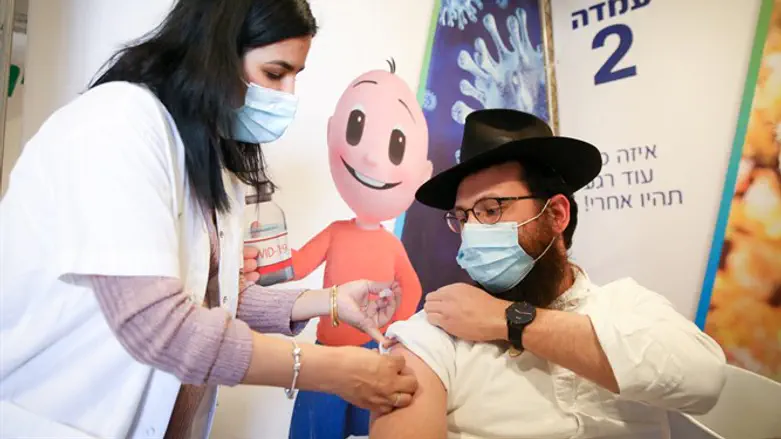
Covid vaccine uptake has confounded observers. Following months of public clamour over slow supply in Britain (and the fear of running out of vaccines in Israel), vaccines are now abundant. But in the meantime it seems that many who could not wait for their arrival no longer want any.
Public health officials looking for the right policy tool might want to dust off the 1957 issue of the British Medical Journal.
In the 1950s public health officials in Scotland contended with a grave medical risk: tuberculosis. X-rays were not yet a routine procedure and the general public was slow to take advantage of screening procedures. Through rolling out a suite of policy measures, Glasgow health officials scored a world record in single-month X-ray uptake — over 700,000 patients, discovering 1,600 active cases. They owed their success to meticulous planning. An information campaign ran over a period of 18 months in diverse media channels: the BBC, the press, and even in cinemas. And one unconventional inducement might account for the extraordinary response, namely a weekly prize draw. There were several prizes, the most glamorous one an Austin A-35 — a classic family car of the late 1950s.
Andrew Barber and Jeremy West, two economists at the University of California, cite this precedent in their analysis of a vaccination incentive programme that ran during May and June 2021 in Ohio. Under the terms of Vaxx-a-Million, any Ohio citizen who received a single vaccination was eligible to enter a weekly prize draw in one of two categories: adults for $1 million cash and teenagers for a full university scholarship.
Granted, a free lottery ticket likely will spur some members of the public to get their jab. Compared to the modest Austin A-35 offered to Glaswegian TB patients, the Vaxx-a-Million programme seems an extravaganza. One would like to see what Ohio’s taxpayers got in return for a programme outlay of $5.6 million.
Barber and West have run the numbers and show that the money was well spent. The prospect of a lottery win galvanised public interest in Ohio. From inception of the programme, vaccination rates increased. Over the month, uptake exceeded base case forecasts by some 82,000. To put the cost of $68 per person into context, the federal government already pays $80 in direct subsidy per full vaccination. Even better news comes from examining savings on medical costs. The increase in vaccinations reduced infections by 1.3 per cent and avoided 5,000 ICU patient-days.
Some takeaways from Ohio’s Vaxx-a-Million could be trialled in the UK.
First, many members of the public may feel more comfortable with entering a prize draw than with entering a vaccination booth. Lotteries are a staple of British (and Israeli) popular culture and National Lottery draws are a TV fixture. Second, devolved administrations could determine how much of a reward should be put into the prize pot, and different results might yield pointers about how best to tweak amounts. Last but not least, Ohio’s offer of free university tuition has been tailored to appeal to young people heading for higher education, the very age group where vaccine hesitancy seems to be particularly high.
Given that public officials are subject to rigorous scrutiny of their spending proposals, it might take time for a vaccination lottery to appear. But in that case, there is nothing to stop the private sector or health plans from coming forward with lottery schemes of their own.
Benedikt Koehler is a Fellow Economics of Religion at the Institute of Economic Affairs in London.
First posted at TheArticle which, writes Editor in Chief Daniel Johnson, aims to be "a website which helps you make sense of the news through free access to exchanges of ideas, rather than echo chambers of prejudice. We have no ideological agenda and we promise never to tell you what to think. Our aim is simply to preserve the integrity of the free press in this country by embracing nuance and complexity – and showing the world in all its shades of grey. To read TheArticle is to see a story from every angle with no abuse, no extremism - and proper editing."